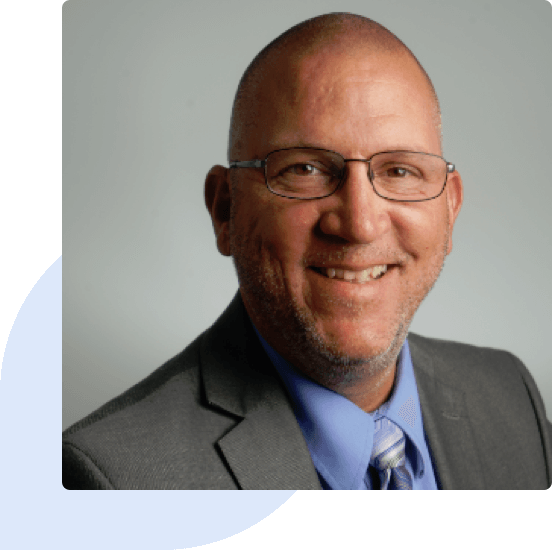Leveraging Public-Private Partnerships to Drive Digital Transformation

The intersection of public and private organizations often proves fruitful when deploying new technologies and services.
While the public sector tends to lag behind private companies when it comes to adopting technologies like AI, machine learning, and robotic process automation, the dramatic shift to more efficient and contactless services in the private sector — brought on in large part by the COVID-19 pandemic — is forcing public agencies to catch up quickly.
As government agencies reorient their operations around a more digital-first approach, they’re often attempting to digitize at scale and at ambitiously fast rates. This presents a significant challenge, especially for agencies and organizations that haven’t invested significant resources into technology research and development.
Conducting a successful and sustainable large-scale digital transformation requires more than quick fixes to faulty systems — it requires a partnership between public organizations and private ones like Maximus, Accenture, and Deloitte. Together, these public-private teams can close skill gaps and carry out initiatives that yield lasting results.
How Technology-Focused Public-Private Partnerships Are Changing the Game
Digital transformation in the public sector isn’t an out-of-reach abstraction. Partnerships between public agencies and private entities at the cutting edge of technological development are already making real-world change.
1. Accenture and Florida law enforcement combat human trafficking
Addressing human trafficking is a challenging and typically reactive process for many cities. That’s why members of the Global Emancipation Network (GEN), Accenture professionals, and other key partners joined forces to develop Artemis, the world’s first human trafficking content classifier. The platform starts by collating public records and digital footprints, then uses a risk scoring engine to identify which individuals and businesses have numerous markers for potential illegal activity.
During the first pilot in Florida, more than 450 businesses were identified as high risk. According to Accenture, that suggests a “100% likelihood of illegal activity.” This information has empowered the state with the actionable insights they need to help keep their community safe.
But Florida isn’t the only state partnering with Accenture to leverage their machine learning-based platform. In California, Artemis has already led to several prosecutions and changed the landscape of human trafficking investigations across the state.
2. Maximus and the Centers for Medicare & Medicaid Services (CMS)
Whenever the CMS denies a claim, beneficiaries are allowed to appeal the decision through a five-step appeal process. Qualified independent contractors (QICs) then manually review the claim data and make recommendations, which are then delivered via letter.
To improve the overall efficiency and accuracy of this practice, the CMS partnered with Maximus. Maximus has since deployed robotic process automation (RPA) at several key points in the appeal process to automate repetitive tasks, remove opportunities for error, and reduce the manual burden placed on CMS staff. For example, Maximus’ proprietary RPA system draws on data from more than 20 different sources to draft letters faster and more accurately, saving hours of labor for CMS employees so they can focus on more complex issues at hand.
3. Deloitte and Smart Cities
Deloitte has been at the forefront of developing “smart cities” — urban municipalities that leverage connected technologies to improve access to economic and social services — for several years and cities across the world, from Buenos Aires to London to San Diego, are benefiting.
Take the case of Columbus, Ohio, where Deloitte executives and Columbus city officials have worked hand-in-hand to craft a roadmap for building a Smart Columbus Operating System. This robust digital platform would integrate data from the city’s many different data systems, including traffic signs and transportation service providers, to drive economic growth, boost citizens’ quality of life, foster sustainability, and improve safety.
Thanks to their partnership with Deloitte and the creation of such a comprehensive roadmap, the city has started to attract the attention of several key funding partners and earn the resources they need to help bring this plan to life.
The Need for Dedicated Contact Centers
While new technologies can certainly help improve internal processes, they aren’t capable of fully replacing humans. Partnering with a highly specialized contact center offers private companies several competitive advantages, including:
- Scalability. Modern contact centers typically employ a hybrid remote/on-site model, which allows them to hire and train agents quickly without accumulating significant facilities expenses. That means private companies can maintain stable pricing for support services when demand spikes.
- Around-the-clock support. Digital transformation can be challenging for even the most sophisticated public sector agencies to navigate. A dedicated contact center partner will provide support 24 hours a day, seven days a week via phone, email, live chat, and more. For private center agencies, providing this level of support helps set them apart from the competition and boost their reputation for creating a superior citizen experience.
- Seamless project rollouts. Contact centers with robust training programs help public agencies ensure their staff and constituents receive the education they need to utilize new technologies effectively. This education is critical: for healthcare agencies, the successful adoption of new devices and software can spell the difference between life and death.
- Compliance Readiness. Public agencies often have access to sensitive personal information, meaning maintaining regulatory compliance is not just important — it’s a legal requirement. By partnering with a contact center, these agencies ensure that all devices, remote internet connections, etc. are set up according to industry security standards.
- Multilingual support. Multilingual services are essential in today’s diversifying societies. Contact centers that provide multilingual call center support and translation assistance for devices logistics and training programs ensure all individuals receive the services they need, the moment they need them.
Partner with a Qualified Support Service
The success of a public-private partnership hinges on a private company’s ability to scale quickly and provide seamless, comprehensive support. Fortunately, Epiphany makes that possible.
Epiphany works tirelessly to provide our clientele with a best-in-class customer service experience. By serving as an extension of your team, we’ll facilitate digital transformations with confidence so plans stay on track and key objectives are met. Contact us today to learn how we can work together to build a comprehensive support plan that drives results.




